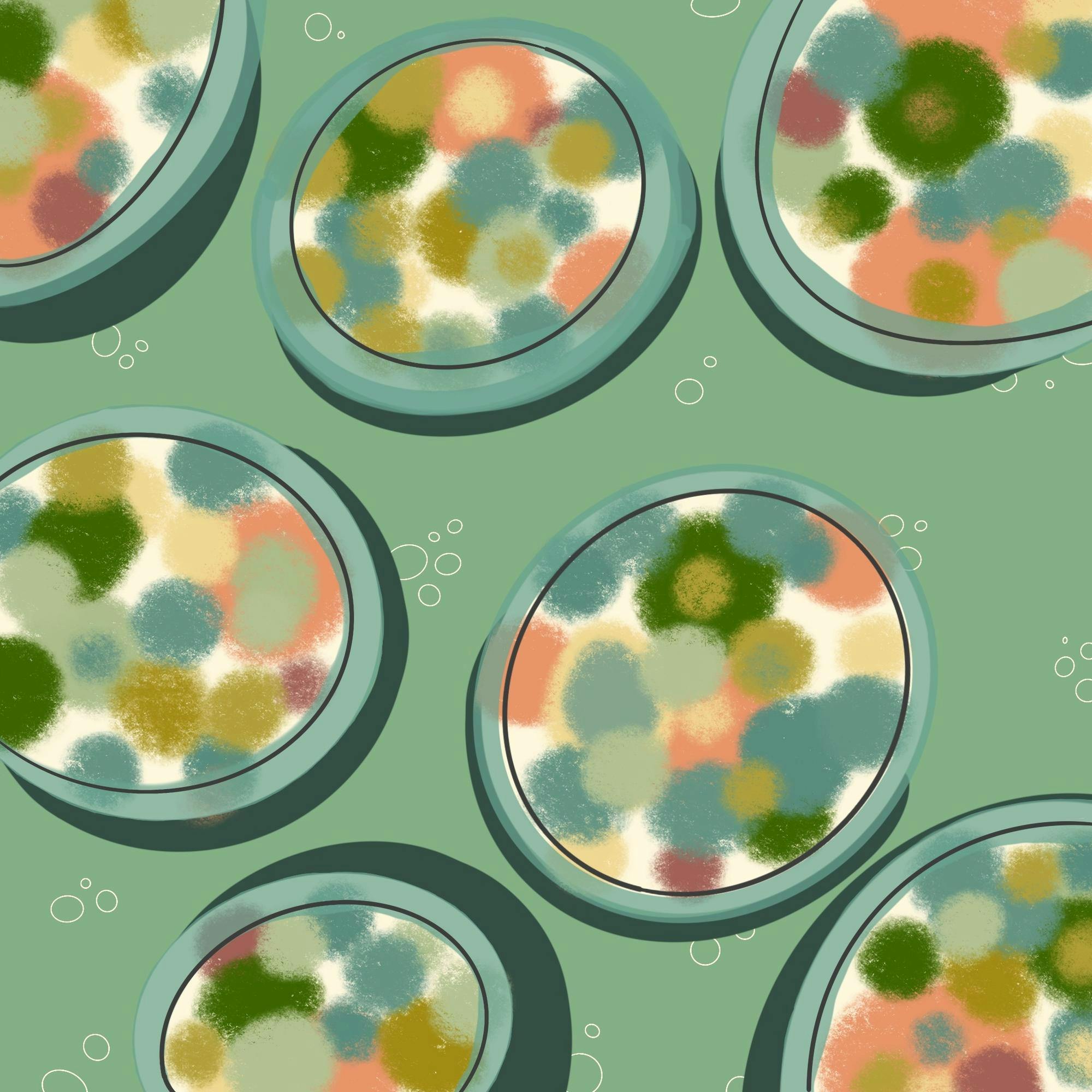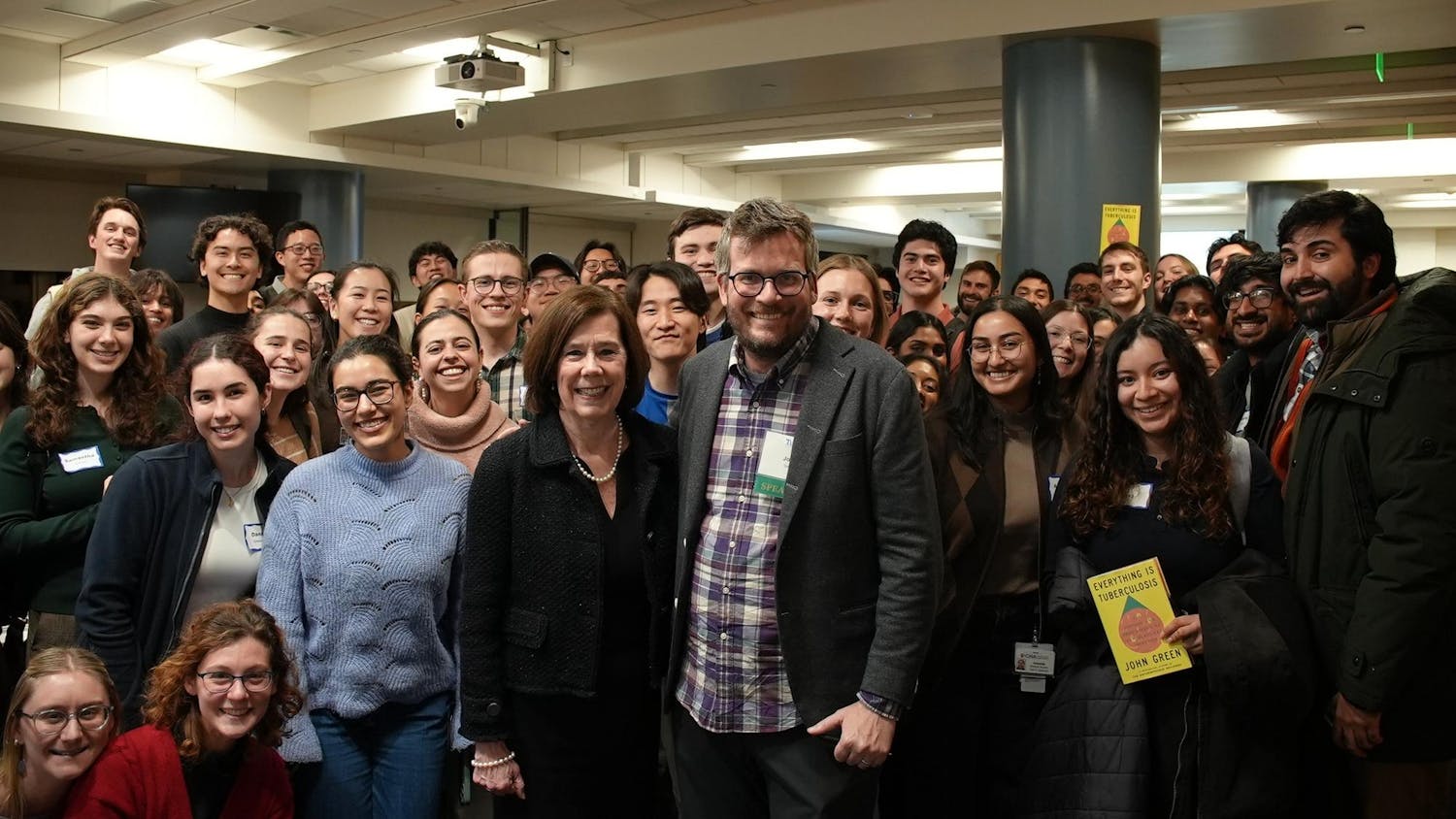Tufts boasts a plethora of research opportunities that span multiple departments and disciplines. Undergraduates at Tufts use these opportunities to participate in research, gain exposure to academia and explore their niche interests.
Just as diverse as the labs they participate in, student researchers learn hands-on while furthering academic projects and knowledge.
Ella Erskine, a junior studying geology and environmental studies, works in Dr. Jonathan Lamontagne’s environmental engineering lab at Tufts. The lab studies statistical hydrology and models risk analyses of water and energy resources.
Through working in the environmental engineering lab, Erskine is learning about hydrological modeling projects.
“I’m currently getting acquainted with a hydrological modeling project in the Massachusetts area,” she said.
Within the lab, Erskine works with many different people, including undergraduate, graduate and Ph.D. students. For undergraduate students in particular, according to Erksine, the work is more akin to an independent project.
“For undergrads, at least in my experience, it’s more of an independent project, which is really nice because I get to work on it when I have time to,” she said. “We have group weekly meetings and there we have someone present on their work, so I have a window into what everyone else is doing.”
This isn’t Erskine’s first lab experience, as she worked in two previous geology labs before joining the Lamontagne lab this year.
“I’ve always wanted to do research at university and try to get a more tactile sort of approach. I was searching through mollusk and bivalve shells from the Boston Harbor at my first position, and milling sediment samples as my second,” Erskine said. “I decided to use this semester as a chance to conduct more research in a more removed sense and develop skills that I hadn’t before.”
This past summer, Erskine was an intern at the Massachusetts Department of Transportation.
“This specific project I’m working on, mapping these watersheds in Massachusetts, [involves] working very closely with other Massachusetts state agencies,” Erskine said. “So in that way, it’s all kind of tied together.”
For those looking to engage in research opportunities, Erksine suggests simply reaching out to professors.
“There’s no reason that you shouldn’t go out and just try it because, at the end of the day, after [the] semester, if you decide that [the research] wasn't for you, then there will be other opportunities,” she said.
Erskine added that she is thankful for her research experiences throughout her undergraduate career.
“I am so grateful for all of the experiences that I’ve had so far, and it’s really helped me navigate where I’ve wanted to go and where I think I do want to go in the future,” Erskine said.
Another undergraduate Tufts student who is conducting research is Kevin Zhang, a senior double majoring in biotechnology and biology and minoring in Chinese. He is currently working in the Kaplan Lab, run by biomedical engineering professor David Kaplan.
The cellular agriculture lab, where Ph.D., master’s and undergraduate students all work, explores new and alternative methods of producing animal-derived products from livestock, as well as the production and development of lab-grown meat.
“A recent project I worked on was on sensory evaluation … of how the cells smell and taste,” Zhang said. “We’re trying to make them for consumption. We had cell lines derived from pig fat that we expanded and grew into pig fat, and we compared them with the pork belly from the supermarket to see how they smelled.”
Zhang was surprised when he learned about the cellular agriculture lab upon arriving at Tufts.
“I proceeded to try to reach out to Dr. Kaplan, the [principal investigator], for the entire year before I actually finally got to start work in the lab,” he said.
Like Erskine, Zhang’s determination proved successful in getting a job at the lab.
“Persistence really helped me get in,” he said. “In the beginning, I was very hesitant [because] I’m just an undergrad and I don’t want to take up their time.” Eventually, however, Zhang came to the realization that “asking is like a superpower.”
Zhang also works for Tender Food, a Somerville-based startup that focuses on alternative proteins such as plant-based meat. He said that the Kaplan lab offers lots of opportunities for networking and career exploration.
“The [Kaplan] lab has a lot of industry collaboration. We frequently have visitors from companies and industries who come to talk and are interested in our research. That provides a lot of networking opportunities and also opportunities for me to get to know the work that happens in the industry,” Zhang said.
Zhang sees the field of lab-grown meat as a rapidly growing one. Guided by what he has learned through research, he plans to pursue graduate school after Tufts.
Within the biology department, Shoshana Daly, a sophomore studying biochemistry, is working in biology professor Sarah Hengel’s lab. The lab studies DNA repair pathways in regards to homologous recombination. Having just begun this semester, the lab is still troubleshooting.
“[In] this current project that we’re working on [with] the [DNA] replicates, we spent about a month doing something that should have taken a couple of days, because when you move into a new lab ... there is stuff that can go wrong,” Daly said.
Daly, who is on the pre-med track, hopes to learn how to incorporate her research into her future career.
“I’m pre-med, but I’m also very much looking at how I can incorporate research into that,” she said.
Daly found Hengel’s lab by attending one of the weekly Friday seminars which are organized by the biology department. She is currently enrolled in BIO-0093: Research in Biology, a lab course where she is earning credit for her work in the Hengel Lab.
When searching for a lab, Daly recommends focusing on only a few that you find interesting, and learning by doing.
“It’s scary, but you just need to throw yourself in the deep end, because I’m learning and I constantly go into a lab [and] I don't know what’s happening. But then I leave and I know a little bit more,” Daly said. “Getting that experimental experience is what’s gonna make you a better scientist.”
Trying new, unexpected things and learning throughout the research process has created dynamic experiences for Erskine, Zhang and Daly. From Tufts to the world beyond, student research is an accessible way for undergraduates to make an impact.






